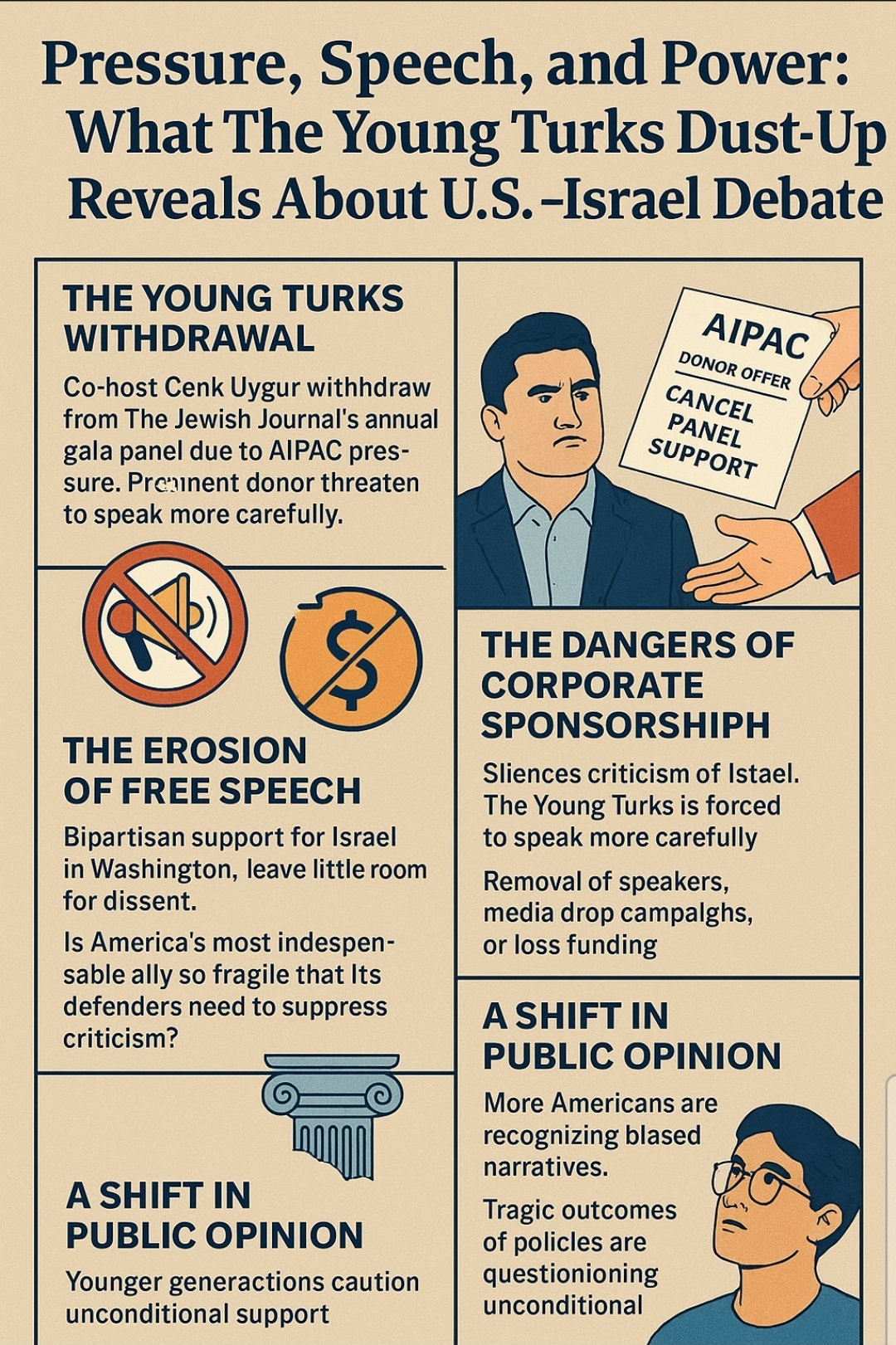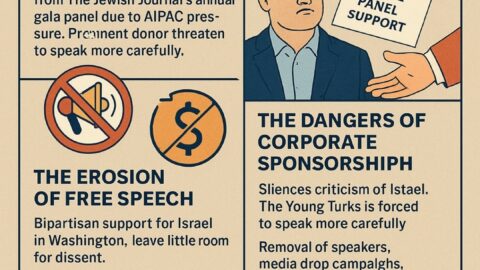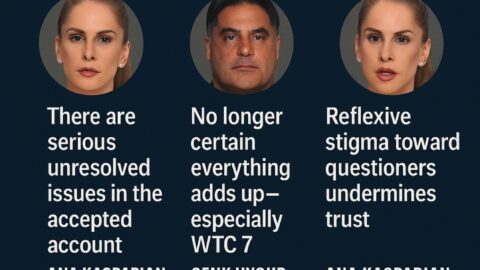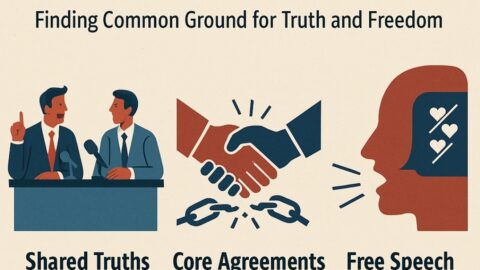Scope: Summarizes the on-air claims in a recent Young Turks (TYT) segment, explains why the fight over “who controls whom” keeps recurring, and offers practical guardrails for honest debate. This piece treats all contested statements as claims to evaluate, not settled fact.
In today’s polarized climate, conversations about U.S.–Israel relations often collapse into a left–right shouting match. But beneath the noise, there is space for common ground. Americans across the spectrum—whether conservative, progressive, or independent—share concerns about transparency, accountability, and the health of free speech in our constitutional republic. These are not partisan issues; they are civic ones.
The recent dust-up surrounding The Young Turks reminds us that debate about foreign policy should not be reduced to tribal loyalty tests. Honest questions about aid, lobbying influence, or media narratives are not automatically “anti-Israel” or “anti-American.” They are part of a broader responsibility to ensure that U.S. policies serve the interests of justice, security, and truth.
Disclaimer: What follows is not about promoting a left-wing or right-wing paradigm. It is about identifying systemic pressures—financial, political, and cultural—that restrict open dialogue. Supporting accountability in foreign policy does not mean aligning with one party or another; it means refusing to let tribal politics obscure the deeper issue: the freedom to speak truth without fear of stigma or retribution.
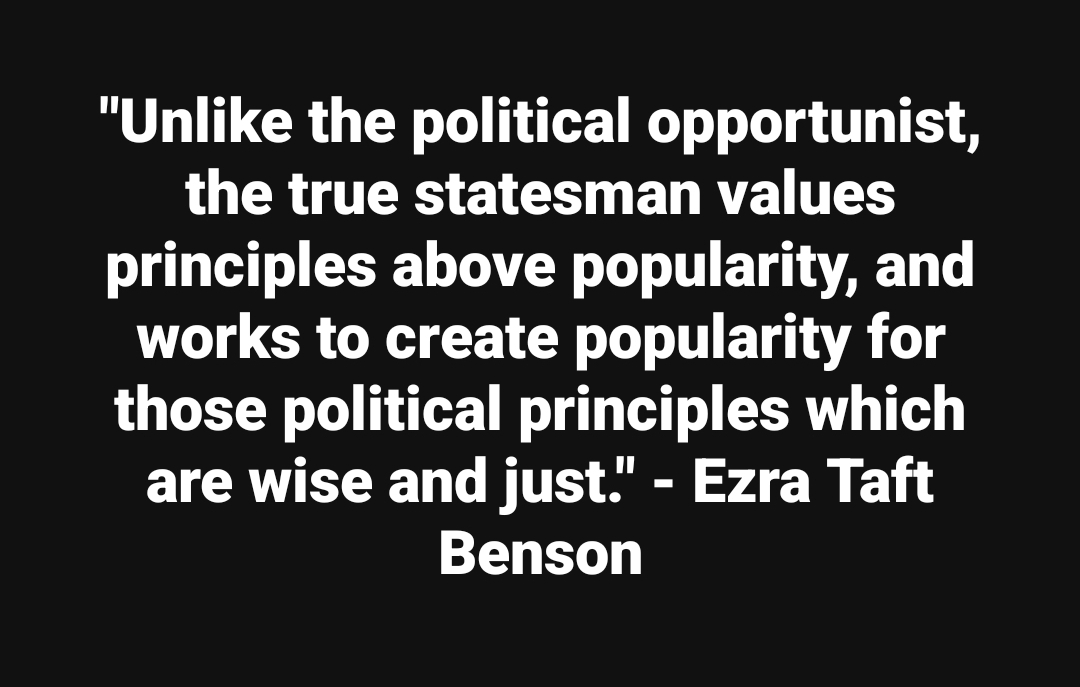
The Flashpoint
In a recent TYT segment, host Ana Kasparian said her Gaza coverage triggered an online campaign urging platforms to demonetize her. She attributes it to pro-Israel advocacy groups and responded on air with several claims:
- She said she has criticized the Israeli government and the IDF, not Jewish people, and rejects accusations of antisemitism.
- She argued that U.S. lawmakers from both parties are highly responsive to Israel’s preferences, citing the influence of lobbying and campaign funding.
- She referenced Benjamín Netanyahu’s post-9/11 comments (as reported at the time) to argue Israeli leaders saw diplomatic advantage after the attacks.
- She cited an ABC News report about five Israelis arrested on 9/11 and later released, calling their release suspicious and an example of influence.
- She defended sharp rhetoric aimed at officials and institutions, while saying conflating that with hostility toward Jewish people is defamatory.
Her co-host, Cenk Uygur, focused on the “why were they released?” question in the 9/11 anecdote, framing it as emblematic of unequal accountability.
Important: Many of these points involve real people, tragedies, and disputed interpretations. They require careful sourcing and sober context. Treat them as hypotheses and arguments, not conclusions.
Why This Keeps Blowing Up
- Blurred lines: government vs. people.
Critics say they’re targeting state policy; opponents hear a broader attack on a protected group. If the language isn’t precise, the line blurs and the debate derails. - Lobbying is legal—so is criticizing it.
Robust foreign and domestic lobbying exists across many issues (defense, pharma, tech, energy). Discussing it is legitimate; casting a whole people as uniquely conspiratorial is not. - Trauma-laden narratives.
Israeli security fears and Palestinian suffering both carry profound moral weight. Media clips that flatten either side intensify outrage and shrink the space for facts. - Platform incentives.
Social media often rewards heat over light. Precision, caveats, and source hygiene underperform compared with outrage and dunking.
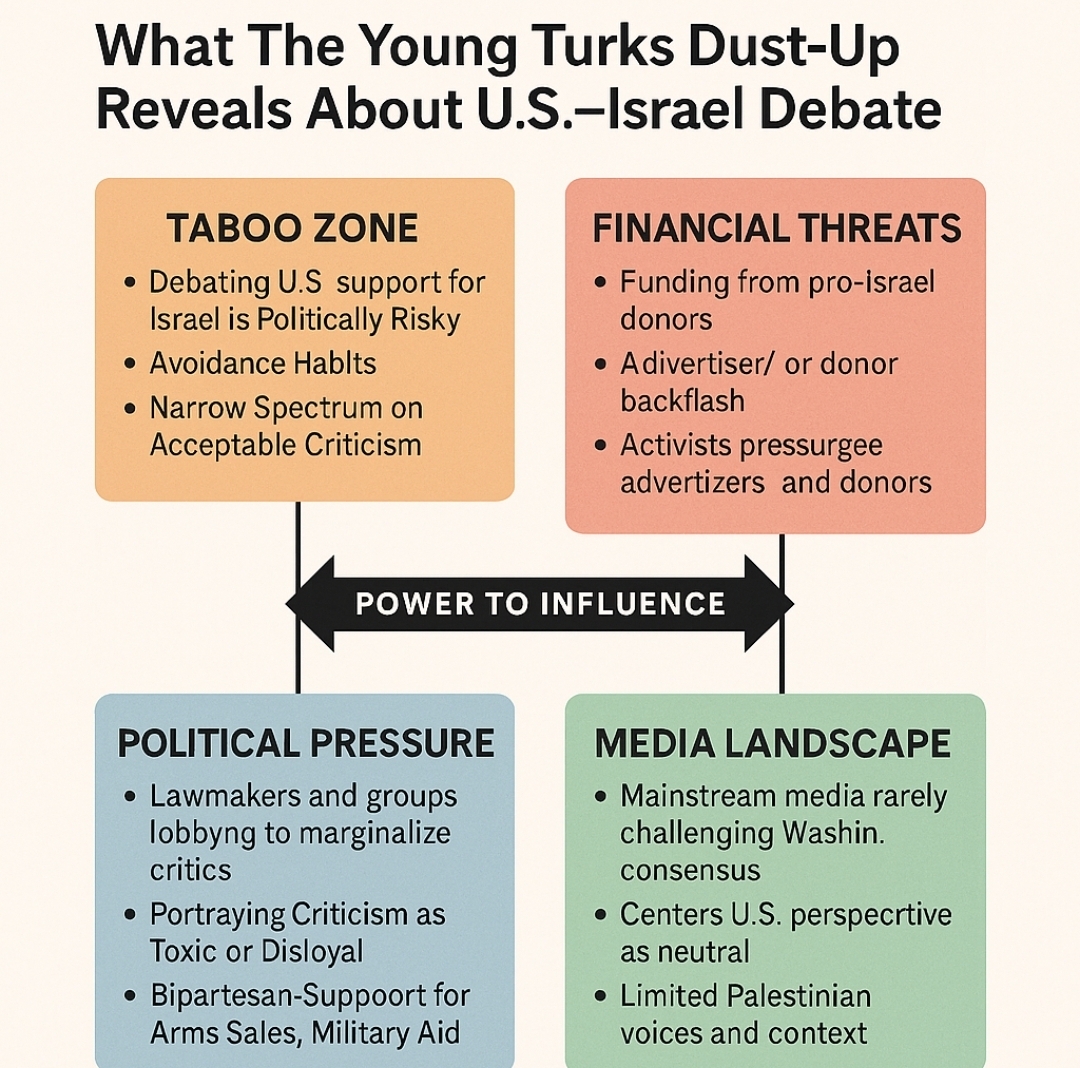
How to Read Claims Like These (Without Getting Played)
Think of four “reading modes” you can apply to any incendiary segment:
- Literal reading (What was said?)
Quote the words accurately. Distinguish “Israeli government/IDF” from “Jews.” Don’t paraphrase into a smear. - Contextual reading (What’s the setting?)
What was the original report? What year? What was happening politically? Does newer information add nuance? - Critical reading (What follows—and what’s missing?)
What evidence was shown? What counter-evidence was ignored? Are there leaps from correlation to causation? - Synthesis reading (What can we responsibly conclude?)
Separate:- Verifiable facts (e.g., dates, direct quotes, who funded what).
- Plausible inferences (interpretations that could be true but need more proof).
- Speculation (possibilities presented without corroboration).
This ladder keeps you from treating a viral clip as either gospel or garbage.
Guardrails for Honest Speech
- Name actors, not identities.
Critique policies, ministries, parties, lobby groups, donors, or specific officials. Avoid sweeping claims about peoples or faiths. - Source like a pro.
Prefer primary documents, contemporaneous news reporting, and credible investigations. Make it easy for readers to check you. - Use steelman habits.
Restate an opponent’s best argument before disagreeing. It lowers heat and raises your own credibility. - Flag degrees of certainty.
Say “asserts,” “alleges,” “is reported,” or “is disputed.” Readers can handle nuance. - Draw bright red lines.
No doxxing, no dehumanizing slurs, no incitement, no applause for violence. Ever.
The Recurring Questions (And Better Ways to Ask Them)
- Influence vs. control
Better question: What are the measurable channels of influence (aid, arms cooperation, lobbying expenditures, staff pipelines, veto points), and how do they compare to other allies or industries? - 9/11 anecdotes
Better question: What do official records say? What did agencies conclude? Are there declassified documents? What alternative explanations exist? - Media bias
Better question: Across outlets and years, what content analyses show about tone, framing, and sourcing on Israel/Palestine? Compare U.S. vs. international press.
Why Precision Matters
When debates slide from policy critique into group attribution, two bad things happen:
- Innocent people get targeted because of identity, not actions.
- Real accountability gets harder, because sloppy arguments are easy to discredit—even when legitimate concerns exist.
Precision isn’t politeness; it’s power. It keeps attention on institutions and choices, where change is possible.
A Practical Reader’s Checklist
Before you share the next explosive clip, run this five-point check:
- Quote check: Did I repeat exactly what was said?
- Source check: Can I link two credible, independent sources?
- Scope check: Am I criticizing policies/actors—or a people?
- Causation check: Am I leaping from pattern to plot?
- Harm check: Will this add light—or just heat?
If you can pass all five, you’re contributing to accountability, not just outrage.
Final Thought
Democracies need watchdogs, not witch hunts. It is fair game to ask hard questions about foreign policy, lobbying, and wartime conduct. It is never fair to smear entire peoples, to dehumanize, or to launder speculation as fact. The work is harder this way—but it’s the only way to keep truth and dignity intact while we argue about the things that matter most.
Here’s a point-by-point breakdown of the Young Turks segment:
1. Framing the Conflict
- Ana Kasparian opens by saying that her Gaza reporting has made her a target of groups in the U.S. that, in her view, aim to silence critics of Israel.
- She identifies one such group, Stop Antisemitism, which she links to previous campaigns she sees as frivolous or weaponized.
2. The Accusations Against Ana
- The group accused her of:
- Spreading antisemitic conspiracies.
- Claiming Jews control the U.S.
- Calling pro-Israel lawmakers “scum and traitors.”
- Calling Jews “demons.”
- Calling Israel’s flag “modern-day Nazis.”
3. Ana’s Rebuttals
- Jews vs. Israel: She insists she never said “Jews control the U.S.” but rather that Israel exerts outsized influence over U.S. policy.
- Lobbying & Pressure: She cites AIPAC’s funding and political intimidation as evidence for this claim, also speculating about blackmail as a factor.
- Taxpayer support: She contrasts U.S. deficits with Israel’s budget surplus to argue against billions in U.S. aid.
- “Scum and traitors” remark: She confirms she used the phrase but directed it at U.S. lawmakers who, she claims, prioritize Israel’s interests.
- “Demons” remark: She says this was directed at the Israeli government and IDF for actions in Gaza, not Jewish people broadly.
- Flag comparison: She denies ever talking about Israel’s flag; she says she called Israeli government actions “modern-day Nazis.”
4. Netanyahu and 9/11
- Ana recalls two statements attributed to Benjamin Netanyahu:
- 2001: He told the New York Times the attacks were “very good” for Israel diplomatically (later softening to “not very good”).
- 2008: He told Maariv that Israel benefited from 9/11 and U.S. wars in the Middle East.
- Ana interprets these as proof of cynical opportunism by Israeli leadership.
5. ABC News Report on the “Dancing Israelis”
- She cites an ABC News segment describing witnesses who saw five Israeli men celebrating and taking photos during 9/11.
- Police arrested them; they were later linked in reporting to Israeli intelligence.
- Ultimately, they were released and returned to Israel, which Ana and Cenk Uygur (her co-host) frame as suspicious.
6. The Core Question
- Cenk emphasizes: if they were identified as spies, why release them?
- He argues that normally spies are jailed, exchanged, or prosecuted—not quietly sent home.
- He suggests this shows the depth of Israel’s influence in Washington.
7. The Attempt at Demonetization
- Ana frames the campaign against her as an intimidation tactic—an effort to scare journalists away from covering stories critical of Israel.
- She vows not to be silenced, citing her First Amendment rights and her responsibility as a journalist.
8. Broader Point Raised by TYT
- They distinguish between:
- Criticism of Israel’s government or its military actions.
- Antisemitism, which targets Jewish people as a whole.
- They argue conflating the two is a deliberate strategy to suppress dissent.
- Cenk closes by highlighting how critics of Israel in America—whether students on campus or journalists—are often smeared or threatened.

